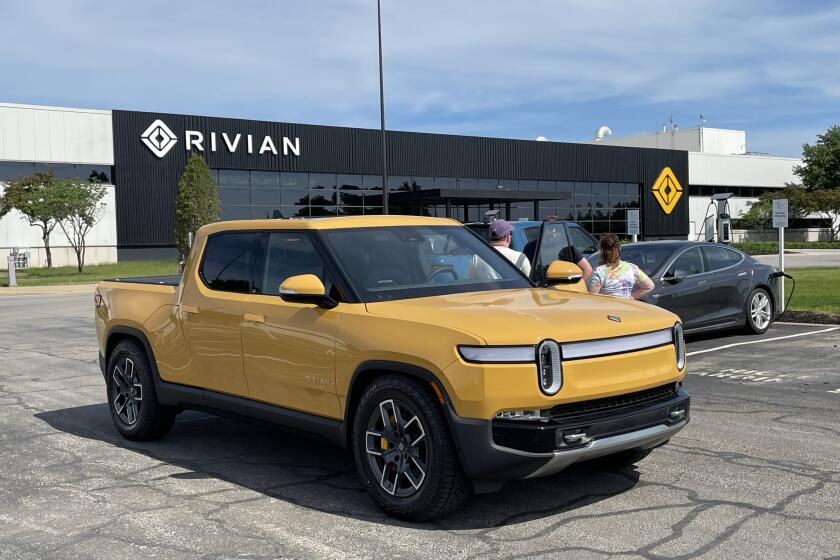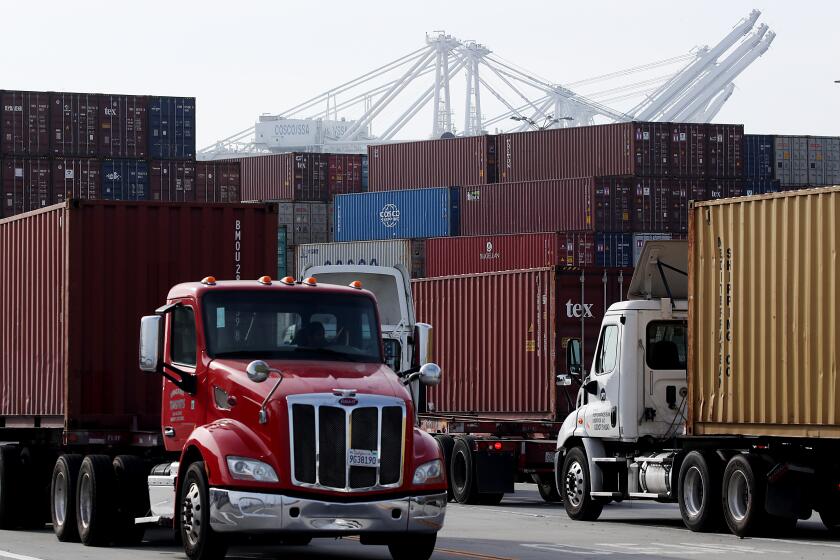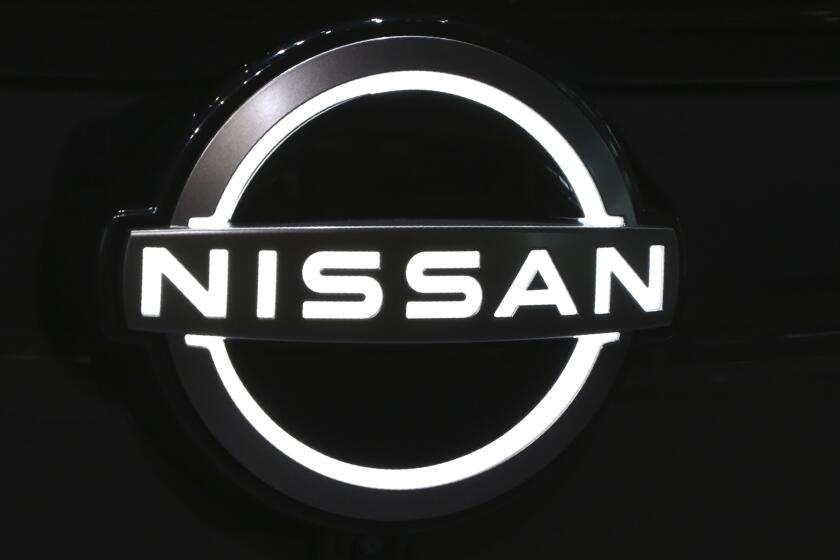Volkswagen to Shut U.S. Plant : Closure Blamed on Slow Sales of Cars Considered Outdated, Overpriced
Confronted with slumping demand for Volkswagens, particularly the Golf hatchback, the West German car maker announced Friday that it will close its plant in Westmoreland, Pa., the company’s sole U.S. assembly operation.
Overall U.S. sales of Volkswagens have tumbled by a third since 1980, with hatchback sales plunging most dramatically. The Golf subcompact now sells only a third of what its look-alike predecessor, the Rabbit, sold seven years ago.
The losses “were no longer justifiable,” Volkswagen Chairman Carl Hahn said on West German television.
Volkswagen was the first major auto importer to open an assembly plant in the United States when work started at the Westmoreland plant in April, 1978. But even as the plant was opening, the company’s Beetle and hatchback Rabbit were already beginning to give ground to imports of Japanese subcompacts.
That trend accelerated as the subcompact market became increasingly competitive in this decade and Volkswagen proved reluctant to tamper with the hatchback design of the Rabbit, which was introduced in West Germany in 1974 and in the U.S. in 1975. The Rabbit sold well in the 1970s, but its look-alike successor, the Golf, looks increasingly dated now as hatchbacks have gone out of style.
Friday’s announcement brought a bitter and blistering joint statement from United Auto Workers President Owen Beiber and Vice President Bill Casstevens, head of the union’s Volkswagen division. They blamed the Westmoreland plant’s closing on “poor performance by a VW management team that failed to give the Pennsylvania plant a new model line.”
‘Buy With Eyes’
Volkswagen of America said it will shut down operations in Westmoreland next summer, when it has met demand for the current, 1988 model year. The move will mean the loss of 2,500 jobs in Westmoreland, a small town located about 35 miles southeast of Pittsburgh. Volkswagen said it will try to sell the plant to another car maker.
The company also said it will lay off some of its 300 technical and administrative employees at its Troy, Mich., headquarters.
The Golf’s sales slump is familiar to VW dealers. “Other manufacturers have been bringing out new models, but Volkswagen just doesn’t like to make changes. . . . (The Golf) is still basically a Rabbit,” said George C. Colome, owner of Colome Volkswagen in Montebello.
Sales of Golfs at the dealership have been falling for the last two or three years, he added. “The car is excellent, but the American public buys with their eyes, not their brains.”
Golf and Jetta cars henceforth will be imported from West Germany, Volkswagen spokesman Thomas McDonald said, adding that no price changes are planned soon.
Beiber and Casstevens charged that Volkswagen’s decision, “shows a shortsighted, bottom-line mentality and betrays a loyal and productive U.S. work force in Pennsylvania.”
The union leaders said the plant, which has been operating at less than half of capacity for five years, should be more competitive these days given the fall of the U.S. dollar against the West German mark.
Since February, 1985, the dollar has nose-dived 49.2% against the mark, making West German products more expensive here.
At a base sticker price of $7,990, the Golf also became more expensive than its level of quality justified, said Philip K. Fricke, an auto analyst and vice president at Prudential-Bache Capital Funding in New York. “The car just was overpriced relative to the competition, and in particular, relative to Japanese competition.”
West German labor unions and banks play a critical role on Volkswagen’s board and probably encouraged the company to shut down U.S. production rather than make cutbacks in Germany, said Thomas F. O’Grady, president of Integrated Automotive Resources, an auto industry research firm in Wayne, Pa. “When things dip a bit, there’s all that pressure to move back to Germany.”
Selling the plant will not be easy because of a growing overcapacity of auto production facilities in the U.S., Fricke said. None of the Big Three U.S. car makers--Chrysler, Ford and General Motors--is likely to be interested because they already have ample capacity, he said.
Bought From Chrysler
Volkswagen of America, the U.S. subsidiary of Volkswagen AG, headquartered in Wolfsburg, West Germany, built 197,110 Rabbits at the Westmoreland plant in 1980--when the company sold in the United States a total of 293,595 U.S. and German-built cars. By contrast, this year through Nov. 9, it made just 54,797 Golfs and 2,636 Jetta sedans.
The Westmoreland plant was retooled this year to produce Jetta sedans, and has made them so far at a rate of about 100 a day. The plant also makes 300 Golfs a day. In 1980 and 1981, the plant made about 1,040 Rabbits a day, a company spokesman said.
Volkswagen bought the Westmoreland plant almost new from Chrysler in September, 1976, for $28 million. But Chrysler is not likely to discuss buying it back now, spokesman Jerry Moore said. “We have extra capacity at this time, so any discussions would be moot.”
In the early 1980s, Volkswagen built a second U.S. assembly plant in Sterling Heights, Mich., only to sell it unused to Chrysler for $192 million in April, 1983.
SALES OF VW PASSENGER CARS PRODUCED IN U.S. In thousands
1978 22,582 1979 166,576 1980 177,118 1981 162,005 1982 91,166 1983 85,038 1984 73,844 1985 77,537 1986 74,146 1987 53,629
First Ten Months



